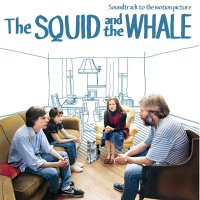 Following on from my previous post on writing for other media, I thought I'd take a look at some opportunities in each of those 'other media', starting with theatre.
Following on from my previous post on writing for other media, I thought I'd take a look at some opportunities in each of those 'other media', starting with theatre.Soho Theatre have just announced the Westminster Prize for 06/07. This is open to anyone living or working in the Borough of Westminster without a produced play to their credit. It's a great opportunity to get started in writing for theatre. The brief is to write a ten minute play with two characters (no more, no less), inspired by all or one off the three photographs above. Three winners will have their plays performed at Soho Theatre. Deadline is February 2007 and full details can be found here. While you're there, scroll down to the bottom of the page for an excellent list of tips and hints, or sign up for a free workshop on 12th December or 16th January. Think I'm going to give this one a go.
If you aren't elligible for the Westminster Prize you could try the King's Cross New Writing Award. This is open to all writers of any level experience, deadline May 2007. The winning play will be produced by the Courtyard Theatre.
For writers in the North of England there's the Bang! competition. The prize is a writing mentor, a bursary of £1000 and the chance to have the work performed on stage. The organisers are looking for short dramas for the stage of, up to fifteen minutes long and they can be either a complete piece or an extract of a longer piece. Submissions should reflect the British Asian Experience. A free series of workshops are being held in various cities across the north to tie-in with this. Deadline for is 8th January 2007.
There are a number of new writing theatres and theatre companies based in London, either actively seeking new work or offering reading services. These include 10 in a Bed Theatre, who hold monthly readings of plays in progress, Theatre 503, Operating Theatre Company and Canal Cafe Theatre, The Bush Theatre, and The Royal Court, Hampstead Theatre among others. In addition to offering written feedback on all scripts submitted, Hampstead Theatre also run a fantastic initiative, Start Night. It's held every four to six weeks, and audience members give written feedback on the performed work. Next Start Night is 22nd January, deadline for submissions 5th January. Full details here.
This isn't an exhaustive list, by any means, so please send me any other opportunities or initiatives, especially those out of London, as obviously I'm better informed about stuff that's happening on my doorstep! Check outWriternet's guide to producing theatre companies to whom writers can send unsolicited work. Also, check out Tom Green's guest post on Danny Stack's blog.
Posts on opportunities in radio, short film and short stories to follow when I get around to it. I am trying to keep busy to keep my mind off the fact that the selections for the UK Friendly Producers Scheme are expected tomorrow...
